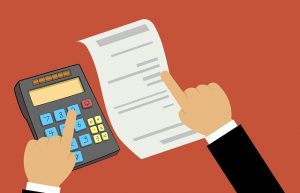
Creating a budget is easy— it’s sticking to a budget that’s the real challenge. Many things are easier said than done, and your finances are certainly no exception. However, a budget is a necessary part of reaching your savings goals. By putting financial limits on yourself, you can put enough money inside and be able to purchase whatever matters most to you. Whether you’ve got your heart set on buying a grand piano, or going on a vacation to Hawaii, here are some of the best tips for sticking to your budget.
Think it Over
Statistics show that one of the biggest causes for overspending is impulse buying. When you buy something on a whim, you’re not using your best judgment. So, one of the best things you can do for your wallet is thinking about things before clicking “buy.” If there’s something you have your eye on, give yourself a few days to think it over. If you’re still thinking about it, then it’s an indication that it may be worth your money. However, if it slips into the back of your mind, then you probably don’t really need it in the first place.
In addition, this idea does not just apply when making new purchases, as it can also be a principle you can keep in mind when making transactions for subscriptions. Perhaps you have a recurring bill for streaming apps. Consider checking your lifestyle to see whether or not you’re making the most out of these subscriptions. If you aren’t able to use it as much, maybe you can reconsider and opt to cut your subscription instead.
Pay off Your Debts First
When trying to decide what to spend your money on, always prioritize paying off debts first. Otherwise, you’ll be spending what you don’t have. The more that you rely on credit, the more that you get stuck under a mountain of debt and interest. If you can’t afford something now, then wait until you can afford it. Relying on credit is not the answer. Pay off what you owe and save for big purchases that you can buy outright.
Paying off huge debts doesn’t happen overnight, so it’s also essential to develop healthy financial habits while you’re paying them off slowly. A strategy you can consider is to trim down your monthly expenses. That way, you can allot more of your income to your savings and pay off debts.
For instance, instead of buying lunch elsewhere, you can prepare a sandwich at home and take it with you to work. Or perhaps, instead of buying yourself coffee every morning, you can prepare your caffeine fix at home or office and place it on your tumbler. You’ll be surprised by how much you can save by developing such habits consistently, even after recovering from a financial setback.
Write Down Your Goals
Any time you’re trying to stick to something, it helps to write down why you’re doing it in the first place. Whether you’re trying to lose weight or spend less money, staying focused on your goals helps you stay motivated when you are tempted to do otherwise. Write them down and revisit your goals regularly. Consider posting photos of things that you want to save money for where you can see them every day. The more you can remind yourself of why you’re putting limits on yourself, the more your hard work will pay off.
When setting your financial goals, one of the factors to consider is if they’re realistic and achievable. For instance, it can be challenging to set a goal of reaching your first million if you haven’t found a stable income job yet. And so, it’s best to write your goals in smaller chunks.
To create a realistic and attainable financial goal, it’s essential that it’s aligned with your financial personality. And to help you know your money personality, you can take online quizzes such as Denise Duffield-Thomas sacred money archetypes quiz.
Pay With Cash
One of the best tricks for sticking to your budget is breaking your budget up into cash envelopes. Each envelope should be dedicated to a specific area of your budget. When the envelope is empty, so is that part of your budget. The envelope system can be much more effective than using a card, which can often allow you to spend more than what you actually have. You can’t overdraft your budget using a cash envelope!



